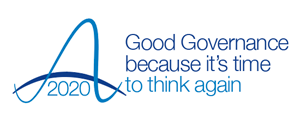Physiotherapy reboot
25 June 2020

In a previous bulletin we’ve looked at how Connect Health have been supporting the NHS during the pandemic. One of the examples we used was community musculoskeletal services provider Connect Health and its ramping up of virtual physiotherapy and redeployment of staff to support the NHS.
In response to the coronavirus crisis Connect Health accelerated plans to improve its remote service, as well as its own team’s ability to work from home. It mobilised 200 people in less than two weeks, tested and implemented a new video consultation tool that was fully integrated with existing systems, and moved almost all patient appointments to virtual consultations.
Connect Health also introduced an additional digital self-assessment tool – PhysioNow, an app that provides accurate triage to virtual services or self-management, if appropriate. The tailored clinical content and powerful decision trees accurately evaluate and direct the patient to the right treatment pathway, all audited to feedback and improve patient experience.
Recovery phase challenges
The recovery phase brings with it a fresh set of challenges, one of the biggest of which is dealing with waiting lists in severely curtailed circumstances. The NHS Confederation recently expressed concern that the crisis could see the number of people waiting for NHS treatment double to 10 million by the end of the year.
Waiting lists for MSK services were already long before the pandemic, with one freedom of information request in 2019 revealing waiting times of up to four months for physiotherapy appointments. Then, towards the end of March, to contain the spread of the virus, all non-essential face-to-face outpatient appointments were postponed across the NHS for at least three months. Physiotherapy also has an important part to play in the rehabilitation of COVID-19 patients so demand has increased significantly.
In response to NHS requests, Connect Health is now offering a range of rapidly-developed solutions, all backed up by detailed proposals.
Rehab for patients - MDT clinical teams supporting patients with recent orthopaedic surgery, fractures or those with complex needs;
Acute Trust support - Reviewing and reducing waiting lists in orthopaedics, pain and rheumatology, formally leading staff through change e.g use technology;
Virtual/teleconsultations - Connect Health has been performing telephone triage for 20 years and has new online tools and ways of working to help trusts embed in their staff;
Digital pathways - Range of digital tools including PhysioNow digital triage; webinar-based exercise; video consultations; online pain management programmes;
Primary care demand - Self-referral access and First Contact Practitioners in clinic or virtual;
Admin / enquiries line - Supporting care co-ordination of patients across large geographies.
Workforce challenges
As the pandemic moved from its peak into the recovery phase, Connect Health continued to explore opportunities for continued flexibility and collaboration, including providing volunteer staff to ease the burden on front-line health workers.
Alex Beechey is just one of a number of Connect Health clinicians to respond to the call for volunteers. The senior MSK physiotherapist in Herts Valley was seconded to the Peace Hospice in Watford to deliver care on an intensive palliative care unit (IPU). Alex says: “I mostly work with terminal cancer care patients, as the regular physios had been redeployed onto the front line and they needed cover. It is a bit of a free role and I am helping patients with their independence, mobility and dignity. I’m here to help in any way I can, which means the doctors and consultants can be freed up to do what they do best.”
Rejuvenating the talent pipeline
The impact of COVID-19 also extends to the physiotherapy talent pipeline in the UK. The pandemic has halted the studies of MSK physiotherapy students across the country, with numerous student placement programmes put on hold. It’s a stressful time for many students, who find their careers in limbo for an unknown period.
So Connect Health has developed a virtual student placement initiative, which started on 19 May with 25 students, closely followed by another 120 from June. Connect Health also set up a student academy in Workplace, enabling access to teaching from 400 clinicians and a broad range of educational resources. This offered a lifeline to students who were unable to progress to the third year of their course and was vital to those students unable to work in trusts during the pandemic due to shielding themselves or a relative.
Call to action
Connect Health offers an example of best practice in what an NHS reset could look like. What is your organisation doing to help the NHS rise to the extraordinary challenge of COVID-19 – and has your offering changed now we’re moving into the recovery phase of the pandemic? As ever, we are interested to hear perspectives and experiences of those within the public sector and beyond. If you have any questions or comments please call us on 07732 681120 or email advice@good-governance.org.uk.
Jessica Lubin
Digital Development Manager
Donal Sutton
Strategy Director
